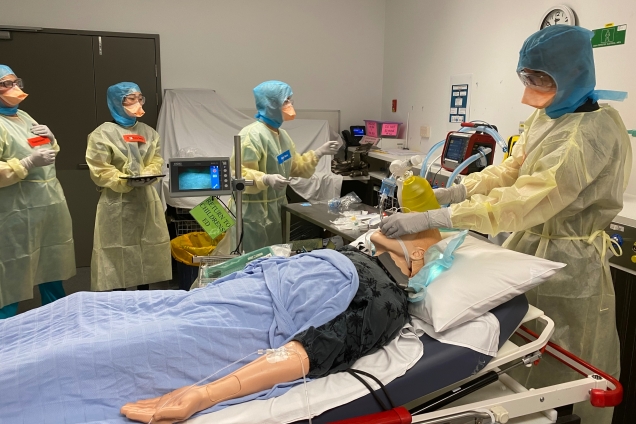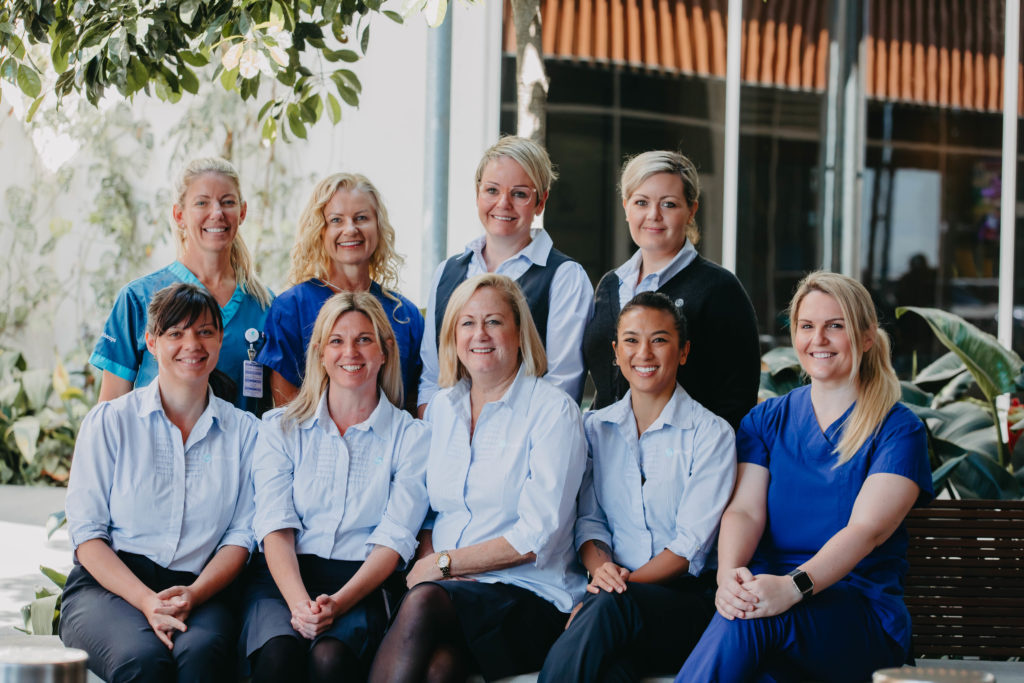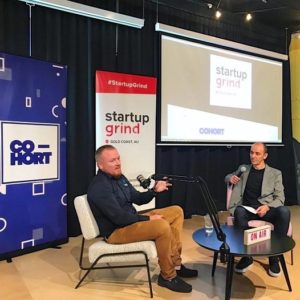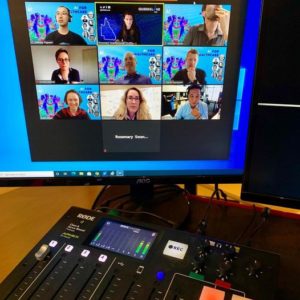
Upskilling, reskilling and diversifying are the catch-cries of the COVID pivot. There’s never been a better time to embrace career change, professional growth and business transformation, and here in the Precinct we’re at the forefront of preparing for post-pandemic jobs and business opportunities – from Griffith University’s extensive suite of micro-credentials, to a significant ramp-up in professional healthcare training and exciting new innovation programs.
To quote Albert Einstein: “The more I learn, the more I realize how much I don’t know.”
And as Eartha Kitt said: “I am learning all the time. The tombstone will be my diploma.”
Micro-credentials and professional learning the way of the future
The world of work will never be the same again, and the Gold Coast Health and Knowledge Precinct (GCHKP) provides the ideal learning environment to support both its 15,000-strong existing workforce and up to 20,000 students, with an entrepreneurial ecosystem and research collaborations to create and grow the jobs and businesses of the future.
While capital city corporate offices have been stripped of staff due to COVID-19 impacts and work-from-home practices that look set to be the new norm, precincts like the GCHKP are still buzzing, in a COVID-safe way of course – anchored by essential healthcare workers and enriched by a research-intensive university campus that is delivering flexible education face-to-face and online, alongside an agile innovation hub that quickly created new opportunities for professional and entrepreneurial learning, both physically and virtually.
On any given day, the majority of the Precinct’s workforce, clinical staff at Gold Coast University Hospital (GCUH) and Gold Coast Private Hospital and those behind-the-scenes supporting them, are busy at the coalface – providing frontline services, and training to meet the changing demands of the healthcare system.
Each month, Gold Coast Health’s Simulation Service delivers students and staff up to 500 participant hours of training ranging from emergency care and trauma drills, to practicing patient care while using PPE, and COVID-19 safe patient procedures.
During April they really ramped up exercises – performing over 250 medical simulations, more than the entire number completed in 2019, while they recently funded a new advanced virtual reality program designed to finesse the laparoscopic skills of tomorrow’s surgeons, and improve outcomes for more than 3,000 patients who undergo laparoscopic surgery each year, while saving on theatre costs.
“Based on our modelling, this will equate to a reduction of about 10 minutes per procedure and with theatres running at a cost of $2,000 per hour, that’s a significant saving each year,” according to Obstetrician Gynecologist Dr Belinda Lowe. Improved theatre time efficiency and cost savings are expected to enable more than 250 additional procedures annually.

Gold Coast Private is investing heavily in ongoing education and professional development – an investment that has seen the creation of an entire ‘education team’ comprising 10 nurses, educators and facilitators, focused on coordinating and delivering programs across different sectors, including diabetes, wound care and intensive care.
Graduate nurse programs have been significantly expanded, giving on-the-job training with financial support to enable staff to complete Graduate Certificates at no cost.
Director of nursing Debra Billington says up-skilling staff and providing education opportunities is part of the long-term plan to become recognised as a tertiary hospital.
“While we are already covering a vast number of areas we are continuing to grow and have plans to introduce education coordinators into additional areas including cardiac services, as well as continuing in-house training for advanced life support and paediatric advanced life support.”
Gold Coast Private has also launched a new digital program for GP’s, which has already attracted 900 doctor registrations from across Australia for their webinar sessions.
The comprehensive RACGP-accredited education programs offer fortnightly, digital education sessions, making it easy for doctors to gain their mandatory CPD points, in what is a national pilot for Healthscope hospitals.

Stackable qualifications and flexible options
Griffith University is meeting the challenge of preparing professionals for new employment opportunities in a post-pandemic world by introducing an extensive suite of micro-credentials from Trimester 3, 2020 – 22 individual courses starting in November, and up to 100 in 2021.
The courses, created to assist professionals to fast-track advancement of existing careers, are specifically designed to fill the skills gap that is widely expected to dominate the employment landscape in the wake of COVID disruptions, and are a direct response to the Queensland Economic Recovery Strategy.
“Each of these courses has been carefully selected based on our extensive research into the future of professional work and the key themes that will drive our economy in the near future,” Professor Nick Barter, the Academic Director of Griffith Online, says.
“These are not typical professional development courses as they are specifically targeted to provide graduates with skills and knowledge in industries that will offer high-demand employment opportunities nationally as the economy inevitably makes its way towards recovery.”
Griffith’s new micro-credentials broadly focus on essential skills for ‘worker-learners’ in leadership and management, increasingly popular information technology courses around cybersecurity and artificial intelligence, and business concepts. There is also an extensive offering in the area of public health, including courses targeting pandemic management.
Courses can be taken individually, earning graduates a digital badge for instant accreditation; two courses comprise a Certificate in Professional Studies; or any four courses can be stacked to earn a Graduate Certificate in Professional Studies.
Griffith’s overall domestic applications were up 49% for Trimester 2, 2020, and already school-leaver demand through QTAC for health courses starting in 2021 is up 38%, above the market increase.
Learning anywhere, anytime
While Griffith has phased a return to campus for staff providing selective teaching experiences and support for students, along with a large cohort of researchers needing to maintain laboratories, many staff remain working from home, with a majority of students learning in blended or online modes.
Having welcomed new lab and office tenants during the pandemic, the Precinct’s Cohort innovation space, in the heart of the Lumina commercial cluster, has been nimble in its co-working offerings and creative in its online programs and hybrid events, while providing a valuable meeting space (COVID-safe and by prior booking) to maintain physical connections when Zoom and Microsoft Teams meetings just don’t cut it.
Learning opportunities are largely online or in hybrid mode, including business mentoring, digital business workshops, bite-sized Expert lunch’n’learn sessions, and the Lumina Founder’s Club, launched in August, as a networking & learning club designed for leading founders of startups and scaleups to share their experiences, learn from their peers, and connect with fellow entrepreneurs. Many experiences are free, and others free for Cohort members.
Cohort TV also provides webinars and podcasts and a hosting facility for virtual events, such as the Gold Coast’s first NASA Space Apps Challenge event, part of the largest global hackathon, which will run in virtual mode on 3rd and 4th October.

